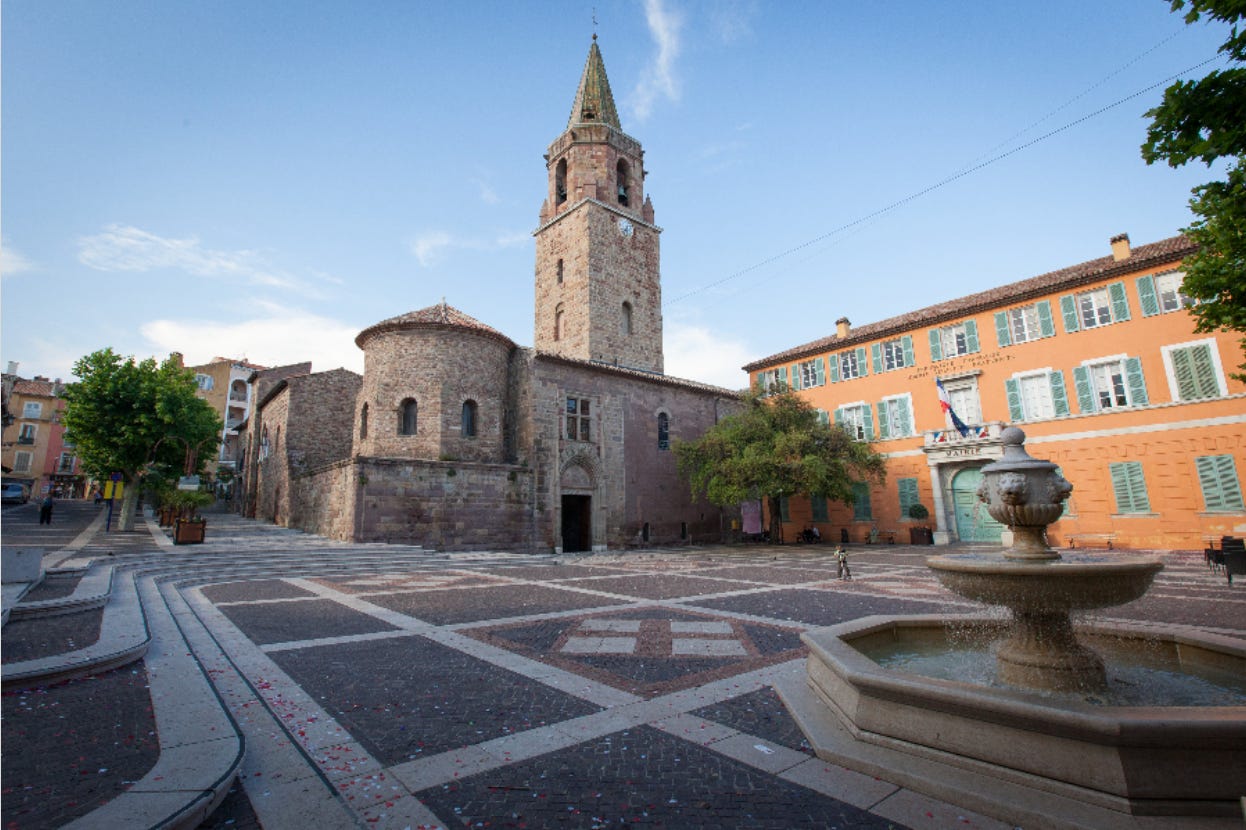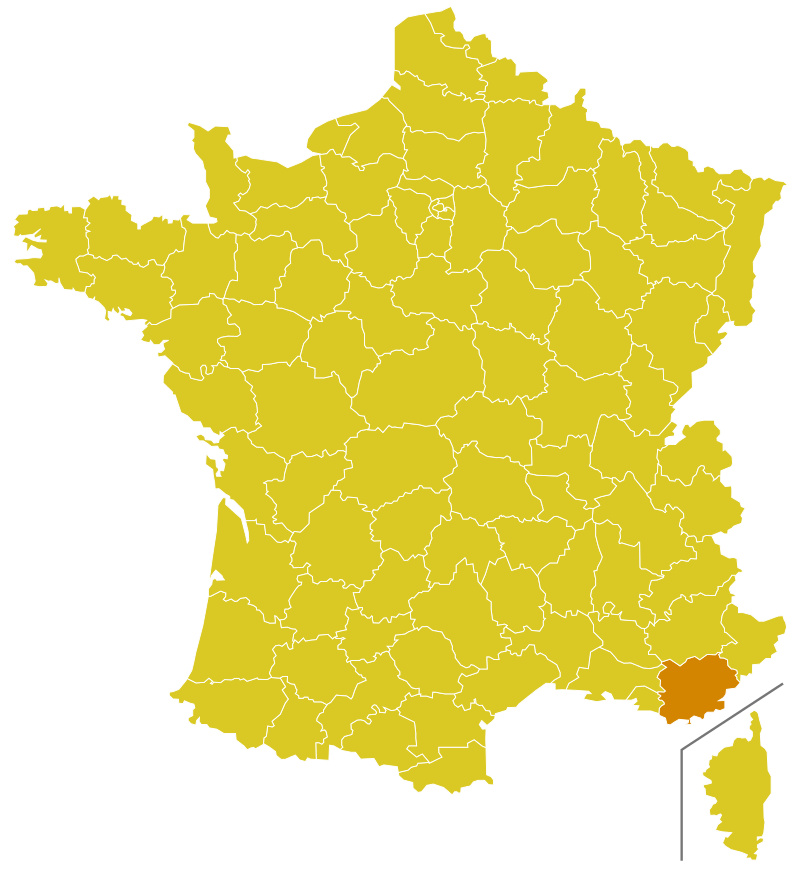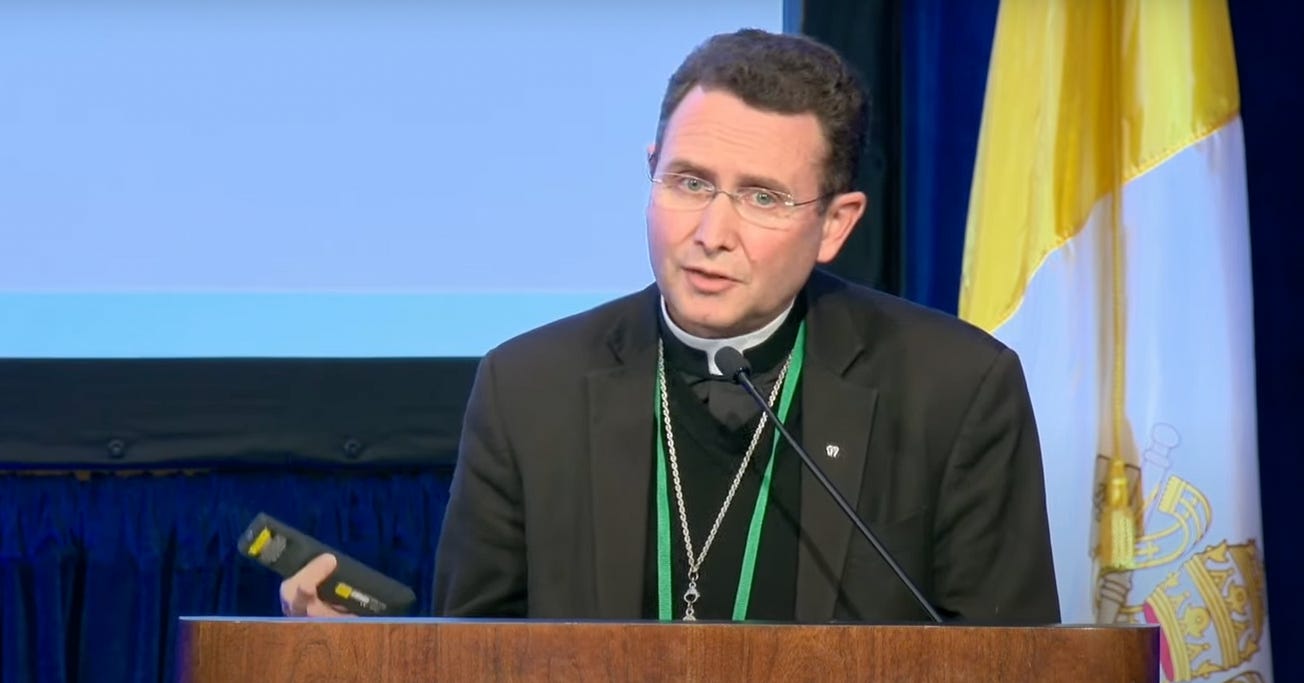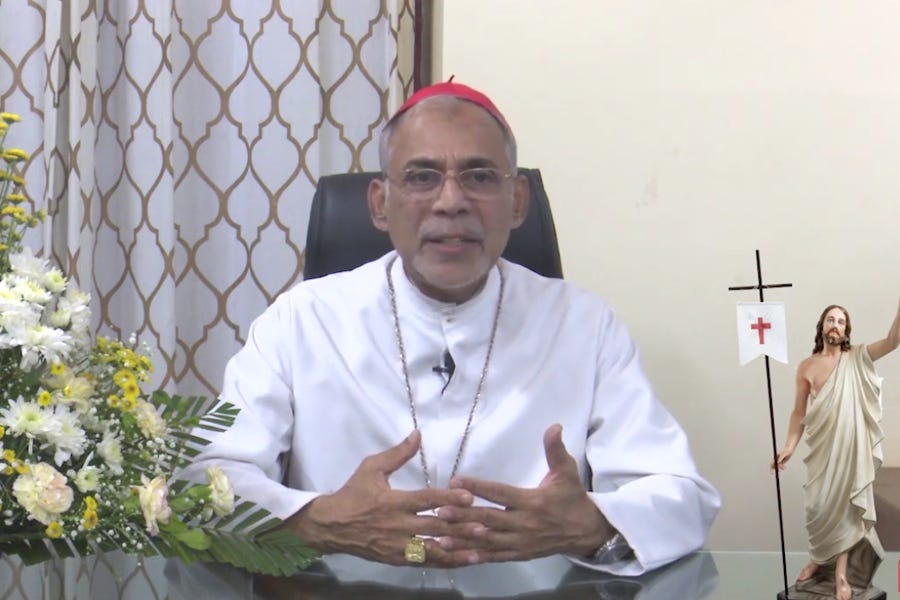
A French Catholic diocese known for its abundant vocations and as a refuge for traditionalist communities will undergo an apostolic visitation from Feb. 13.
The visitation of the Diocese of Fréjus-Toulon, in southeastern France, will be led by Dijon Archbishop Antoine Hérouard, the apostolic nunciature to France announced Feb. 7.
Since Bishop Dominique Rey took charge of the Fréjus-Toulon diocese in the year 2000, it has developed a reputation as a sanctuary for communities attached to the Roman liturgy prior to the reform of 1970.
The diocese has also welcomed groups located elsewhere on the ecclesiastical spectrum, including charismatic communities. The diocesan website lists 50 communities, ranging from the Brazilian Canção Nova to the Volunteers of Don Bosco. Bishop Rey himself belongs to the Emmanuel Community, which was born out of the Catholic Charismatic Renewal movement.
The Fréjus-Toulon diocese has also produced a significant number of priestly vocations while other French dioceses face an increasing shortage.
The Vatican has indicated its concern in recent years about Bishop Rey’s governance of the diocese, which serves approximately 645,000 Catholics out of a total population of around 1 million.
Rome turned first to the local metropolitan Archbishop Jean-Marc Aveline of Marseilles. The archbishop, who became a cardinal last August, undertook a “fraternal visit” to the Fréjus-Toulon diocese beginning in November 2020.
Bishop Sylvain Bataille of Saint-Etienne, meanwhile, reportedly visited the diocesan seminary.
Bishop Rey then met with Cardinal Marc Ouellet, the prefect of the Vatican’s Dicastery for Bishops, shortly before Rome took the rare step in June 2022 of suspending diaconal and priestly ordinations in the diocese — a move described as “a bombshell” in the French media.
Announcing the apostolic visitation on Tuesday, the nunciature in Paris said: “Following a certain number of difficulties encountered in the Diocese of Fréjus-Toulon and in extension of the fraternal visit conducted from November 2020 by Msgr. Jean-Marc Aveline, metropolitan archbishop of Marseilles, the Dicastery for Bishops, by mandate of Pope Francis, just ordered an apostolic visitation of the Diocese of Fréjus-Toulon.”
📰
Fréjus-Toulon is not the only diocese under the Vatican spotlight. In June 2022, the nunciature announced an apostolic visitation of the Archdiocese of Strasbourg, which has been governed since 2017 by Archbishop Luc Ravel.
Archbishop Hérouard, who is leading the visitation in the Fréjus-Toulon diocese, is expected to interview a large number of clergy and lay people. He will be assisted by Archbishop Joël Mercier, the former secretary of the Vatican Dicastery for Clergy.
Hérouard is a trusted troubleshooter: In 2019, Pope Francis appointed him apostolic delegate to Sanctuary of Our Lady of Lourdes, amid concerns over the operation of the internationally renowned Marian shrine.
Hérouard and Mercier are expected to write a report about the situation in Fréjus-Toulon diocese and submit it to the Dicastery for the Bishops, which is likely to raise the findings with the pope.
In an analysis for the French daily Le Figaro, religious affairs editor Jean-Marie Guénois suggested there were three reasons for the apostolic visitation.
The first is Bishop Rey’s management style, which is reportedly direct and determined, and is said to have “offended” some clergy.
The second is the bishop’s willingness to accept seminarians, priests, and communities rejected by other dioceses, which has created problems in certain cases.
The third is Rey’s openness to Catholics with traditionalist sensibilities at a time when the Vatican is clamping down on Traditional Latin Masses worldwide. While Rey does not come from a traditionalist background, he reportedly believes that the French Church’s future lies in a reconciliation of traditionalist and charismatic elements, sometimes described as a “tradismatic” vision.
As well as having opponents within the French Church, Rey has significant support. An appeal to Pope Francis, reputedly signed by more than 10,000 people, described the bishop as “creative” and “daring.”
“Through his actions, Bishop Dominique Rey tries to serve the unity of the Church and makes sure that everyone finds a place in it. Many of us have felt his benevolence,” the appeal said. “They can testify to this: the beggars, the excluded of all kinds, the citizens of the peripheries of the world, they are his friends. He was the one who, close to his neighbor, went to look for the lost sheep, to welcome the prodigal son.”
Guénois noted speculation that apostolic visitation is taking place this month because Cardinal Ouellet is due to step down as prefect of the bishops’ dicastery in April and Rome wishes to resolve the matter as quickly as possible.
The Le Figaro journalist suggested two possible outcomes for the 70-year-old Rey following the apostolic visitation.
In the first, the Vatican may conclude that Rey’s governance style poses insuperable problems and ask him to submit his resignation to the pope, who would appoint a successor.
In the second, the Vatican might decide that Rey is able to address its concerns and allow him to make an “honorable departure” some time before his 75th birthday, following the nomination of a coadjutor bishop, Guénois wrote.
It emerged in May 2022 that two members of the Monastère Saint-Benoît, an English-speaking traditionalist community in the Fréjus-Toulon diocese, had been ordained by an unnamed “senior prelate.” The ordinations were not authorized by Bishop Rey, but the monastery’s prior, the liturgical scholar Dom Alcuin Reid, insisted that they were necessary to ensure the community’s survival.






